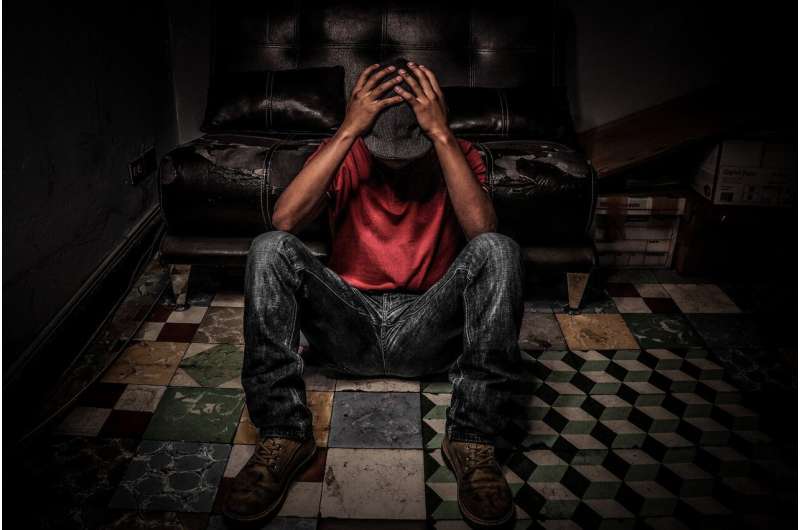Credit: Pixabay/CC0 Public Domain
Some men find strength and stature by adhering to traditional masculine norms, yet these traits can pose as obstacles to mental and physical well-being.
These norms surrounding manhood become barriers to young Black men reluctant to receiving the help they need, according to a new University of Michigan study published in the journal Social Work.
Self-reliance—feeling that you can handle problems, issues or concerns on your own—may be detrimental to young Black men's mental health and is linked to depression, the findings show.
"It is likely that men may not know where to go for help. But even when they do know where to go for help—cultural norms about manhood serve as a barrier to receiving the help that they need," said Janelle Goodwill, a recent graduate of the joint doctoral program in social work and psychology and lead author of the study.
Previous studies have analyzed masculinity among other ethnic groups but few have looked at the impact on Black men.
The study used data from the Young Black Men, Masculinities, and Mental Health (YBMen) Project. The sample included survey responses from more than 270 18-to-30-year-old Black men enrolled at five colleges and universities in the midwestern United States.
Participants rated how they conformed to two masculine norms—self-reliance and emotional control—and depressive symptoms. Some statements they rated included "I hate asking for help" and "I never share my feelings."
Self-reliance was associated with higher rates of depressive symptoms, but emotional control was not.
Goodwill and colleagues say context matters for interpreting the role of emotional control and its function in the lives of Black men. For example, within the context of racial discrimination, emotional control may be momentarily protective, though the long-term mental health effects may be costly.
Goodwill says the findings are timely and raise concern regarding men's willingness to seek help—particularly when considering the current global pandemic and ongoing acts of injustice and racial strife in the U.S.
She suggests that interventions are needed to effectively treat and prevent the onset of adverse mental health occurrences tied to young Black men.
More information: Janelle R Goodwill et al. Adherence to Masculine Norms and Depressive Symptoms in Young Black Men, Social Work (2020). DOI: 10.1093/sw/swaa029
Provided by University of Michigan























